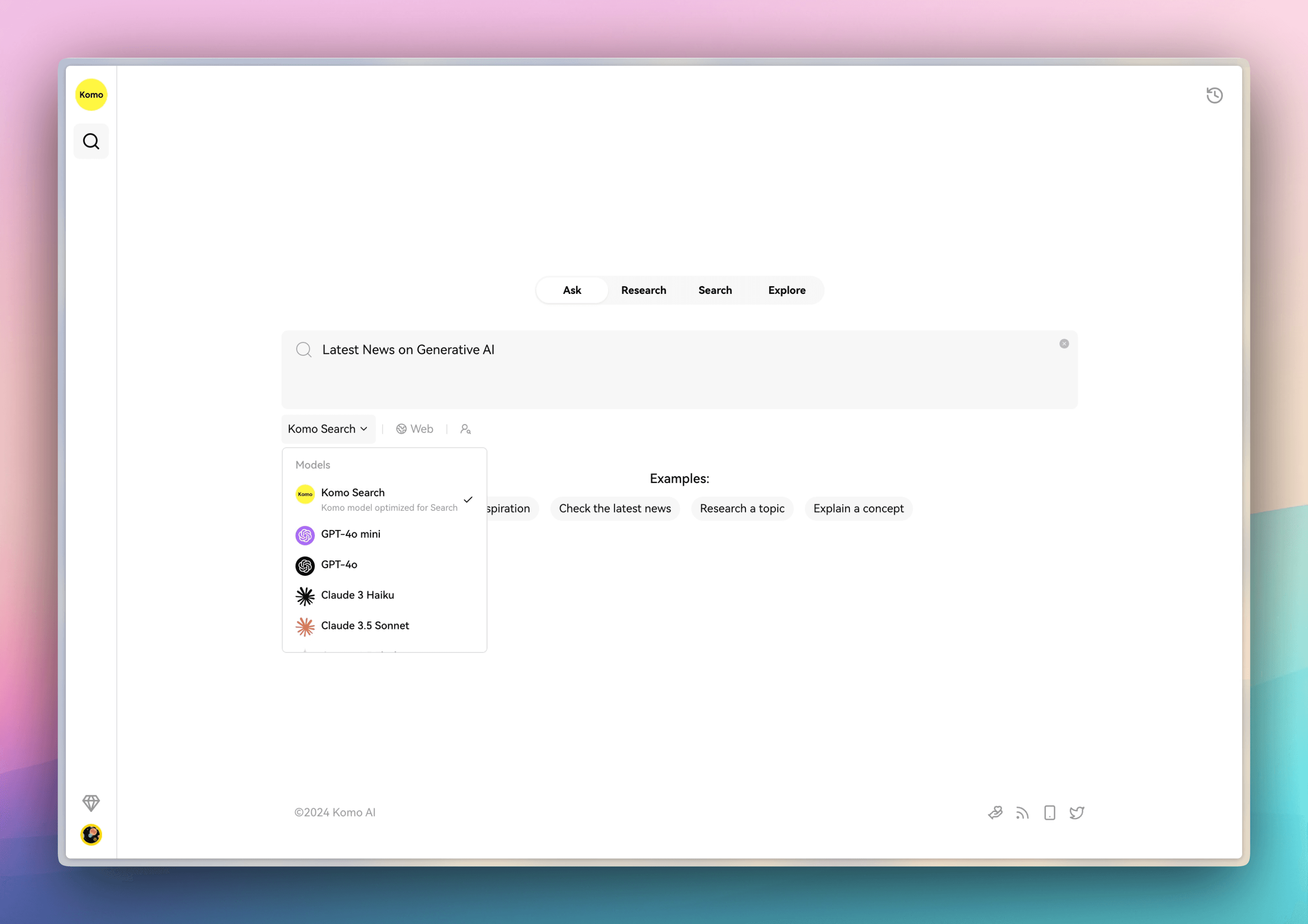Which model should I use?
September 9, 2024
At Komo, we believe in giving you the power and control to choose the right tool for your needs. Komo allows you to access and compare top language models all in one place.
Optimized for Search
By default, Komo users benefit from our custom-tuned open-source models, optimized specifically for search tasks. These models excel at query understanding, document ranking, and answer generation.
Premium Model Access
For our premium users looking for additional capabilities, we now offer access to some of the most advanced

language models available in the market.
To help you choose the right model for your task, here's a quick comparison of their strengths:
GPT-4o
• Strengths:
- Exceptional reasoning capabilities
- Broad and deep knowledge base
- Excellent at complex tasks
• Considerations:
- Longer processing times
- Limited usage quota
- Higher computational cost
GPT-4o-mini
• Strengths:
- Faster response times
- Cost-effective
- Versatile across various tasks
- Proficient in content generation
• Considerations:
- Slightly reduced capabilities compared to GPT-4o
- May struggle with highly complex queries
Claude Sonnet 3.5
• Strengths:
- Strong analytical and problem-solving skills
- Excels in coding tasks
- High accuracy in technical domains
• Considerations:
- Slower processing speed
- Limited usage quota
- May be overly detailed in responses
Claude Haiku 3
• Strengths:
- Well-balanced performance across tasks
- Faster response times
- Strong focus on ethical considerations
• Considerations:
- Less advanced capabilities than Claude Sonnet 3.5
- May struggle with very complex or specialized tasks
Gemini 1.5 Flash
• Strengths:
- Extremely rapid response times
- Adept at generating creative and original ideas
- Efficient for real-time applications
• Considerations:
- May sacrifice some accuracy for speed
- Less suitable for tasks requiring deep analysis
Gemini 1.5 Pro
• Strengths:
- Robust multimodal capabilities
- Strong performance across text and visual tasks
- Adaptable to diverse use cases
• Considerations:
- Slightly less advanced than top-tier models
- May require more specific prompting for optimal results
Llama 3.1
• Strengths:
- Most powerful open-source model
- Performance comparable to proprietary models
- Fast processing speed
- Highly customizable
• Considerations:
- Less adept at following precise instructions
- May require more fine-tuning for specialized tasks
- Potential for inconsistent outputs
Each model has its own unique characteristics, and the best choice often depends on your specific use case. We encourage you to experiment with different models to find the one that works best for you



